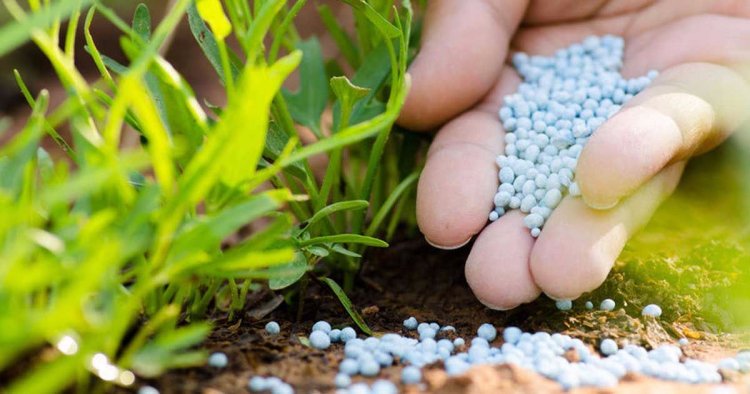The use of synthetic fertilizers increase the nitrogen pollution

While the world is rushing to decrease pollutions in order to mitigate the worst impacts of climate change, some products with pollutant compositions are being officially used by farmers in Rwanda, among others synthetic fertilizers which increase the nitrogen pollution in the soil. This excess nitrogen can have negative impacts on the climate, the natural environment and the health.
According to Dr. Abias Maniragaba, an environmental specialist and researcher, the use of synthetic fertilizers itself was not wrong, because it’s needed for a fast production, the problem is that they are used without proper research about which land needs them and in a certain quantity.
“The plants takes the fertilizers they need, the rest disperse in soil and water, which cause most of the time that pollution. Not every soil needs NPK, some of them have it already; when a farmer is given the fertilizer, he will use it without weighting how much is needed, just because the fertilizer is there” , said Dr. Maniragaba.
There are many forms of synthetic fertilizers on the market, the majority of these will include the ratios of nutrients they contain via the N-P-K ratio, expressed as (10-10-10).
According to the United States environmental protection agency EPA, excess nitrogen can damage delicate plant species, unbalancing the ecosystem. Nitrogen pollution causes nitrogen-tolerant species to thrive and out compete more sensitive wild plants and fungi. This reduces wildlife diversity and damages plant health.
In certain scenarios, excess nitrogen can also present some very real human health risks. Air pollution like this can lead to many health problems, ranging from asthma to heart disease.
Nitrogen pollution issue can be fixed
You can help mitigate the effects of nitrogen pollution by avoiding using synthetic fertilizers and built soil fertility naturally by using compost. You can also plant some nitrogen fixing species like peas, beans or clover, to boost your soil health.
Patrick Ngabo, a professional farmer with agronomy background says that he chooses not to use synthetic fertilizers while well aware that it can help the productivity, because he knows how dangerous they are.
“Yes, they are many reasons why I don’t use synthetic fertilizers, not only they can bring harm to the human health, they even threat other wildlife diversities and the soils. They bring quantity but not quality”, said Ngabo.
Ngabo adds that even if the food safety and quality can take long time to achieve, but it’s possible. He emphasizes that Rwandan farmers should be informed about the risk of using synthetic fertilizers and choose for their own will to use them or otherwise.
Farmers must be supported…
Dr. Maniragaba says that in order to deal with nitrogen pollution, Rwanda should first do research about the land in order to use the fertilizers where they are needed (soil map). And promote the use of organic fertilizers extracted from local tenures.
Rwanda has ratified the Paris agreement on climate change, which was later made as law in Rwanda through a presidential order..
However, Rwandan politic of agriculture allows and advises farmers to use synthetic fertilizers in order to have a high production considering its fast growing population.
Synthetic fertilizers are man-made, inorganic fertilizers. When used in excess, nitrogen fertilizers can be oxidized and lost to the air as nitrous oxide, a long-lived greenhouse gas that contributes to global warming. It stays in the atmosphere for an average of 114 years and is 300 times more potent than carbon dioxide.


 Francine Andrew
Francine Andrew 





























